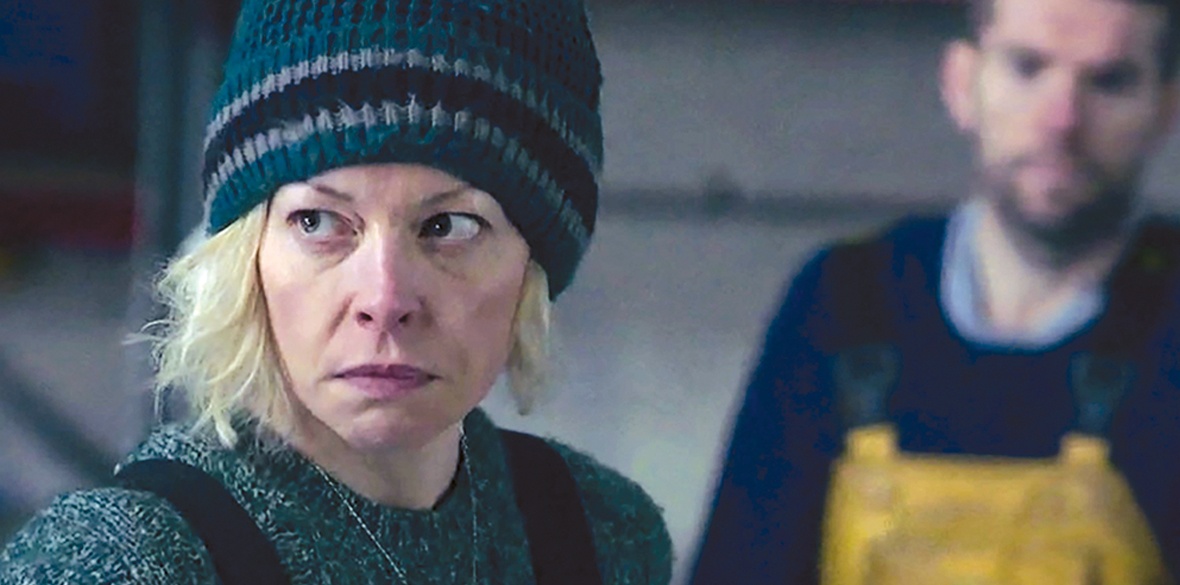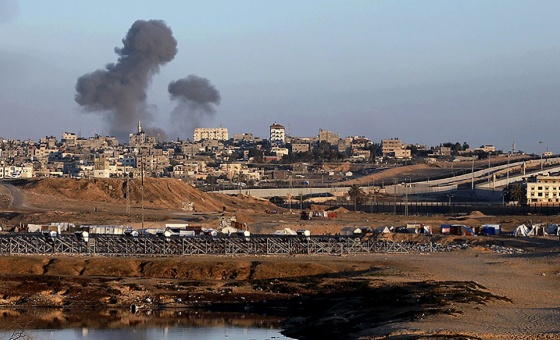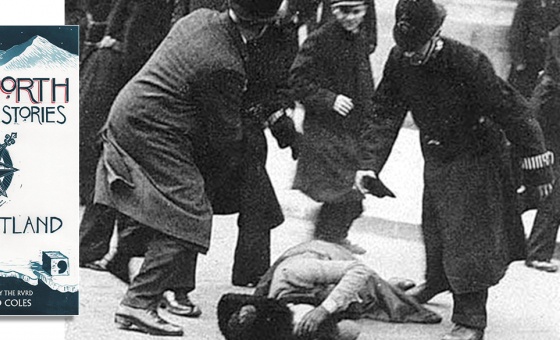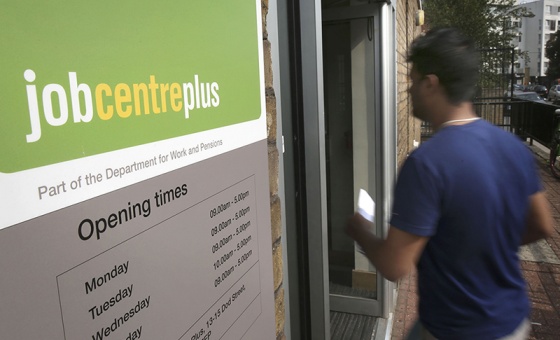This is the last article you can read this month
You can read more article this month
You can read more articles this month
Sorry your limit is up for this month
Reset on:
Please help support the Morning Star by subscribing here
CORPORATE streaming TV seems to be engulfed in a never-ending chasing of its own tail as its programming attempts to more frantically flee any form of social reality, even as that reality becomes more desperate for those working and middle-class viewers living it.
Digital companies use the programming to simply present the virtual world as an ever-expanding source of the abundance so sorely lacking in the actual lives of workers.
Take Amazon’s The Peripheral, part working-class Southern rural woman’s struggle, a la Jennifer Lawrence in Winter’s Bone, but the larger part, and the inducement for the series, is that same woman roaming freely through time and space in her online gaming life not unlike Westworld or the much better, because also critical of that dichotomy, Ready Player One.
The silver lining in this race to oblivion is that around the world, both private and public channels, which cannot match the budgets of these series, are, perhaps even by default, forced to produce series which deal with the actual breakdown of the global system as it affects the lives of its working and middle-class protagonists.
The best of the current crop of these series are Irish public television’s North Sea Connection, available on Viaplay, and from Australian public television Savage River and Significant Others on Paramount+ and Australian Commercial TV’s After the Verdict on Apple TV.
North Sea Connection centres on a family fishing business with the oldest daughter Kiera following in her dead father’s footsteps as the captain of a small fishing trawler.
Her brother Aiden who tells her she cannot any longer make a living as an honest fisher — “those days are gone and you know it” — instead, in language and flashy appearance that mark him as a representative of the “anything goes” neoliberal order, strikes a bargain with a methamphetamine dealer to begin bringing that drug into an Ireland that previously, as the local cop says, “doesn’t have a meth problem.”
Aiden sucks Kiera into his scheme, explaining his using their fishing processing plant as a dumping ground for drugs as “a business transaction that benefits both of the parties.”
He later excuses the death of one of the dealer’s henchmen on Kiera’s boat as a “work accident.” Elsewhere, Kiera’s mother (Sinead Cusack), married to a Swede, discovers a criminal past that enabled them to buy their house and indicates that, for those living off the land to survive, the only path, in a globalised world organised against them, is the illegal one. A similar theme as that raised in last year’s Irish production A Clean Break.
The trope of the convicted criminal completing their sentence and returning to an unforgiving town has already produced two remarkable series in Sundance’s Rectify and Daisy Haggard’s Back to Life and here in the Australian Broadcasting Company’s Savage River it produces a third.
Miki Anderson (a superb Katherine Langford) has supposedly killed her best friend and returns after a five-year jail sentence to a small town where all activity is centred around a sheep slaughterhouse and meat packing plant.
She quickly finds herself in the midst of another murder she is blamed for and in the later part of the series (episodes 5 and 6 of six) she transforms from victim to active detective hunting the actual murderer.
The slimy owner of the meat works wants to sell the plant to a global enterprise which he knows will mean job cuts but when the town reacts the corporation pulls out because, though they will clearly hollow out the enterprise, “our brand is community engagement not community warfare.”
After the Verdict, as attuned to the fraying middle class as Savage River is to workers, uses a gimmick to introduce a murder mystery that is fairly apparent from the start but which is only the excuse for and not the subject of the series.
Four ordinary jurors, all beset in various ways with their own problems, free but then have second thoughts about a wealthy female suspect who may have used her class position and ease with power as tools to convince them she is innocent.
Clara, a Chinese-Australian and mother of two, negotiating a divorce with a husband who centred the marriage around him, is also underpaid and overworked at her clerical job. Daniel, eminently bribable, is a high school teacher who can’t make ends meet as he attempts to provide some kind of life for his teenage daughter.
Ollie is a sleazy and, of course, seductive real estate agent who has problems with abandonment which have kept him alone and isolated. Finally, Margie, a butcher, is in a relationship with an on-call overnight nurse Trish who distrusts Margie’s ability to be honest.
Flawed characters all, but the flaws of each also have everything to do with a middle class under constant pressure to pretend that all is well as the weight of work pressure, debt and their own family history impinges on them.
The relationships each form — two unlikely romantic couples, but also a male friendship of Ollie with Daniel and a female one with Margie that Ollie claims is a first in his life — are the heart of this series.












